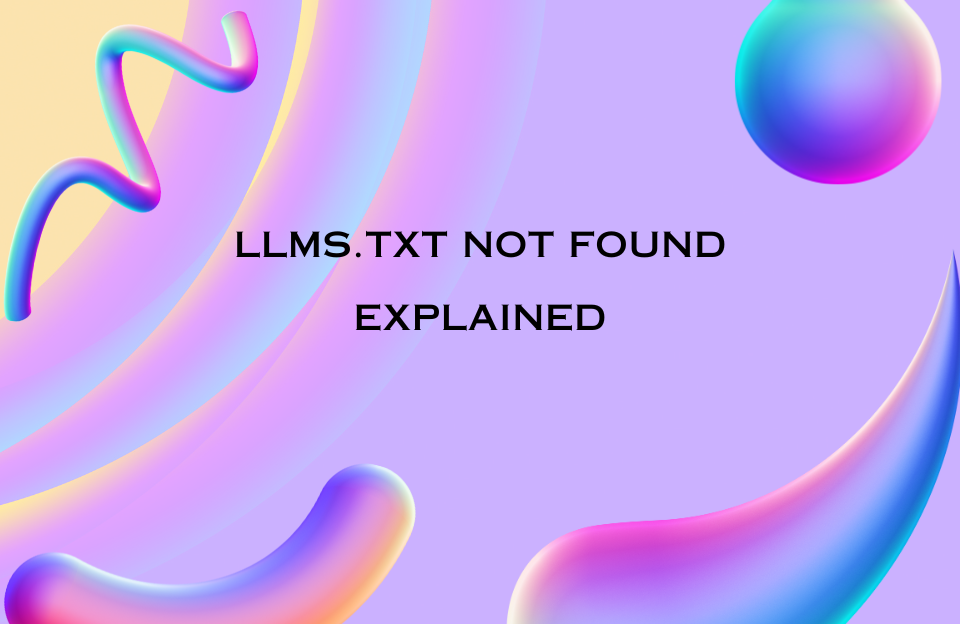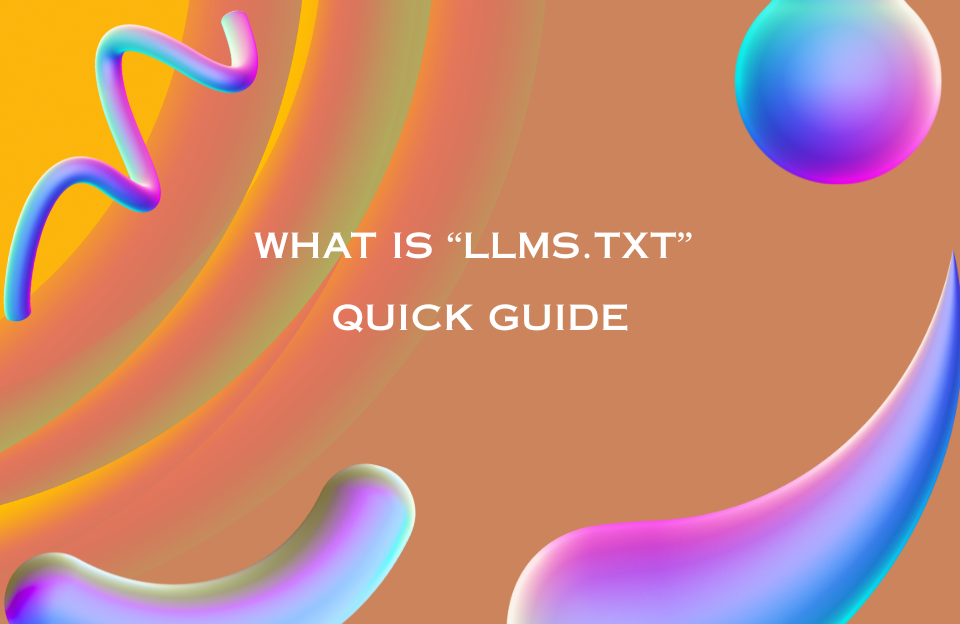If you’re seeing a llms.txt not found notice in your Search Console, server logs, or SEO audit tools, you’re not alone. In 2025, this seemingly cryptic message has started appearing more often—leaving many web developers, SEO specialists, and site owners puzzled.
In this blog, we’ll explain:
- What
llms.txtis (or isn’t) - Why these notices are showing up now
- Whether you should fix it
- How to properly respond to or ignore it
🔍 What is llms.txt?
Let’s get one thing out of the way: there is no official web standard or protocol that defines llms.txt.
Unlike robots.txt, which tells search engines what they may or may not crawl, or ads.txt, which declares authorized ad sellers, llms.txt appears to be either:
- A typo or malformed request by a bot or crawler
- A speculative or experimental attempt to fetch a Learning Management System (LMS)-related file (perhaps intended as “lms.txt”)
- A leftover reference from improperly configured LMS plugins or AI crawlers
So far, there is no W3C standard or documentation that officially defines what llms.txt should contain.
⚠️ Why Are You Seeing llms.txt not found Notices?
There are a few likely causes:
- Automated bots or scrapers are scanning websites for various
.txtfiles, including hypothetical ones likellms.txt, hoping to find structured data or configuration files. - Misconfigured Learning Management System plugins might mistakenly generate requests to non-existent endpoints like
llms.txt. - AI and LLM (large language model) crawlers might be probing URLs more aggressively and broadly than traditional crawlers, resulting in these unexpected fetch attempts.
Note: Some speculate that this may be linked to LLM training or AI content detection—
llms.txtcould be a malformed version of a potential future standard, similar to howrobots.txtguides bots.
✅ Do You Need to Fix It?
In most cases, no. The llms.txt notice is typically harmless and does not affect your site’s SEO, crawlability, or performance.
However, there are scenarios where action might be helpful:
- You’re seeing excessive 404 errors from bots repeatedly querying
/llms.txt - You’re using error tracking tools or uptime monitoring that flag these as issues
- You want a clean crawl report with no unnecessary warnings
🛠️ How to Fix or Handle It
Option 1: Ignore the Notice
If it’s a single 404 in Search Console or a rare bot request, you can safely ignore it.
Option 2: Create an Empty llms.txt
You can simply create a blank llms.txt file and upload it to your root directory:
https://www.yoursite.com/llms.txtContents of the file:
# Placeholder file to handle unknown crawler requestsThis returns a 200 response and stops the “not found” warnings.
Option 3: Block Unwanted Bots
If a particular bot is requesting llms.txt too often, you can block it using .htaccess rules, firewall rules, or a bot management tool.
RewriteEngine On
RewriteCond %{REQUEST_URI} ^/llms\.txt$
RewriteRule ^.*$ - [F,L]Option 4: Log and Monitor
If you’re curious about who is requesting llms.txt, log the requests with IP and User-Agent to understand whether it’s a known bot or an internal system.
🧠 Pro Tip: Don’t Confuse llms.txt with Legitimate Protocols
robots.txt→ Used for crawler instructionsads.txt→ Authorizes ad sellershumans.txt→ A fun file with developer creditssecurity.txt→ Contact details for security issuesllms.txt→ Not an actual protocol (yet)
If someone suggests setting up llms.txt like robots.txt, ask for the source or documentation. There isn’t any — yet.
📌 Conclusion
The rise in llms.txt not found notices is more about modern crawler behavior than real errors. While it may look like something’s broken, it’s usually just noise from overzealous bots or misconfigured systems.
You don’t need to panic—but if you’re a perfectionist (like many of us), adding a blank llms.txt file is a clean workaround.




